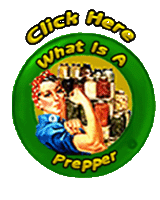One of the first questions Herbal students ask is for the clarification between teas, infusions and decoctions. I thought now might be a good time to go into each so there is a solid understanding in making Herbal preparations.
Teas
Infusions
Flowers: 1oz herb to a quart of boiled eater for a minimum of 2 hours
Seeds/berries: 1 oz herb to a pint of boiled water for a minimum of 30 minutes
A good example in the difference in a tea and an infusion is seen in nettles. A cup of nettle tea, for instance, contains only 5-10 mg of calcium, while a cup of nettle infusion contains up to 500 mg of calcium.
Infusions are very nourishing. Think of herbs not only as healing, but as a food. Herbs are chocked full of vitamins and minerals. Herbs should be in your daily diet and an infusion tea is a great way to get all the vitamins and minerals into your system. You can add infused teas to soups and stews as part of the broth or make the infusion using vinegar or honey in place of water.
It is best to use one infused tea at a time. Using one herb at a time you will learn how that infused tea works. If you have a mixture of teas it is hard to tell what herb is doing the healing. Drink 2-4 cups a day of the infused tea, refrigerating the tea to slow spoilage
When my kidneys act up I will do a Dandelion infused tea for two weeks. On the third week I will use a Red Clover infused tea. The Red Clover helps clean the blood and aids in the healing process. On the forth week I will do another Dandelion infused tea.
Healing with herbs is not an overnight miracle cure. Most herbs do not work at destroying the ailment, but work at restoring the natural body functions so it can heal itself. Yes, various herbs kill bacteria and yeast. I can not stress enough the importance of knowing your herbs. When using one herb to kill bacteria be sure to alternate with an immune builder to rebuild the cells that have been attacked or coated with bacteria.
Infusions using alcohol such as Everclear or Vodka usually brew/steep for several weeks. The same rule is used when making an infused oil, vinegar or honey. Infusions made with alcohol are usually done for use as tinctures and infusion in oils for use in other preparations such as salves, creams and lotions. Herbs infused in vinegar and honey are usually used as food.
Decoctions
A decoction is an herbal preparation made by simmering plant material in water until the water is reduced by half. A general rule for making decoctions is to use 1 ounce of plant material for each pint of water. Decoctions have a very short life span. It is best to use the decoction right away although you can refrigerate it for a day.
A decoction can be used when you need immediate relief such as in a poultice. Often when I have a cold I will make a decoction with lots of honey to ease the coughing. You can also make a decoction and add it to your bath water.
Bring your herb and water to a boil and immediately reduce heat and simmer for 20-30 minutes covered to retain all the volatile oils and salts. You do not want to continue boiling as it may kill off some of the beneficial nutrients. Remove from heat so boiling does not continue until heating element has cooled enough to give a very slow simmer.
Decoctions are generally made from the more woody type herbs and roots. I do use decoctions of leaves when making horehound drops for colds. I will have an infusion ready and add the decoction to it to give an added kick.
There is no hard fast rule in using decoctions, Just keep in mind decoctions are for immediate use. If ingesting, do not use continually as the oils and salts are much stronger than in an infusion. Decoctions are great for strains/ sprains using the decoction hot in a poultice.






No comments:
Post a Comment